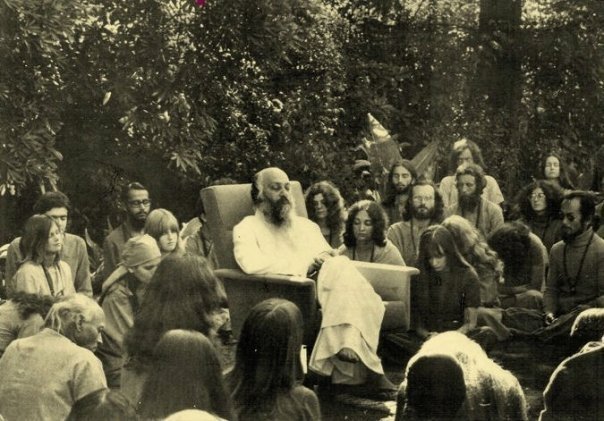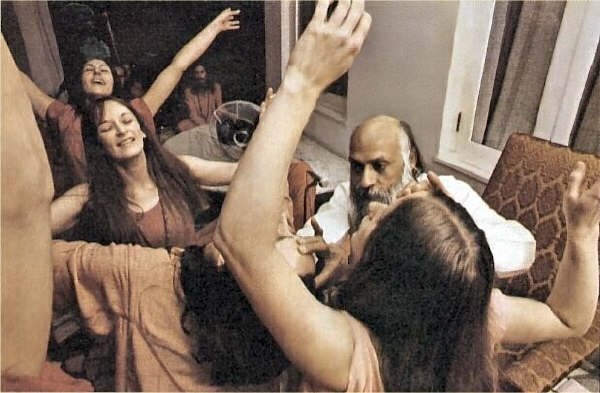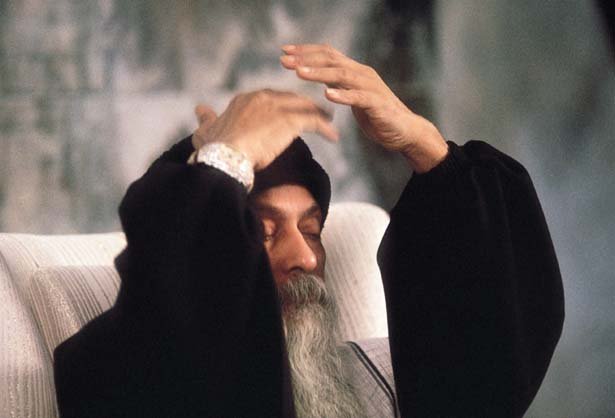The West has grown a few very important methods: gestalt, encounter, primal, bioenergetics and many more. The East has also grown many methods: zazen, vipassana, Sufi whirling, yoga, tantra. Their approaches are different, so different that both are only halves of one whole; hence both lack something.
The Eastern methods can create a meditative space, but they make you so introverted that you start escaping from life; all Eastern methods have proved escapist in the past. You want to go to a monastery, you want to go to the Himalayas, you want to go to a cave somewhere and to live alone. They teach you how to be alone, joyously alone — but then something is missed.
Life is also relationship, life is also togetherness, life is also communion. It is beautiful to be blissful when you are alone, but that is only half the story; you should be blissful also when you are together with someone. And when you are blissful with someone, the bliss reaches a higher peak. When you are alone you are like a solo flute player; when you are blissful together in relationship, the music is more like an orchestra.
The West has created methods which give you more impetus to be extroverts. They allow you methods, skills to relate, and to enjoy relationship. They are love methods, but something is missing. You enjoy relationship, but whenever you are alone… and essentially you ARE alone. You are born alone and you will die alone, and at the deepest core of your being you are always alone. So on the surface you remain happy, but deep down a subtle current of misery continues. You cannot encounter yourself, you cannot face yourself, you cannot meet yourself.
The West has failed because all that it has developed is extroversion; the East has failed because all that it has developed is introversion. And man is neither extrovert nor introvert.
So if you are only following Western methods you will be going through much pain because you will not be able to create a meditative space through them. If you are following only Eastern methods you will be able to create a meditative space, but you will become absolutely useless in the world, and you will miss the enrichment that comes with communion with other human beings.
My effort here is to create the first synthesis between extroversion and introversion and help man to become so capable of both, together, simultaneously, so easily able to move from extroversion to introversion and from introversion to extroversion, that there is no need to divide man into such categories. Man can become so fluid.
It is as simple as when you come out of your house: you don’t think that you are becoming extrovert coming out of your house. When you feel it is cold inside and outside there are no clouds and it is so sunny, you come out, but you don’t think at all.
You don’t decide, “Now I want to be an extrovert.” Or when the sun becomes too hot and you start feeling the heat, you don’t make a deliberate decision, “I should go in. Now I want to be an introvert.” No, when the sun is too hot you simply move in! And when inside it is cold you come out. Coming out of your house or going into the house is not a problem at all, because you are free from the inner and the outer.
My effort here is to help you to be free from the inner and the outer, because you are neither the inner nor the outer, you are something transcendental to both. The inner and the outer are just parts of your personality; it is the house in which you live which has an outside and an inside. But your awareness has no inside and no outside.
So these three things are to be remembered: drop the past, drop future expectations, and third, create a synthesis between extroversion and introversion… and all misery disappears.
It is not inevitable for a spiritual seeker to suffer. You suffer because you are not aware of your own responsibility. It is not because of growth that you suffer. You suffer because you are unconscious of your resistance, of your past-orientation, of your future expectations, and you are unaware that you don’t have any meditative space within you.
OSHO
from : The Dhammapada : The Way of the Buddha..vol. 11 ch.2



